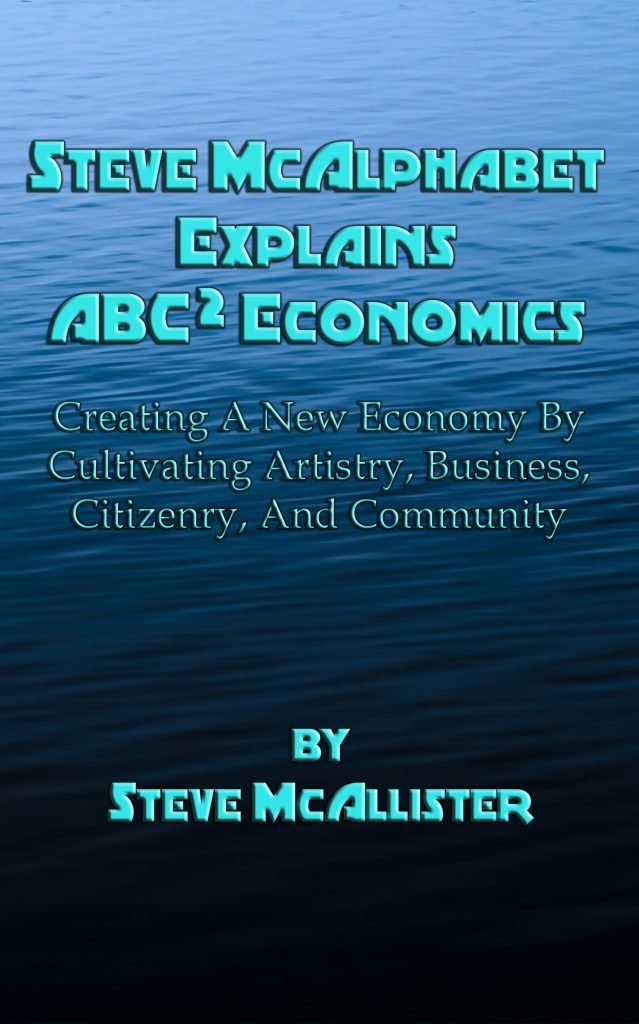“Ecological harmony is a nonmarket value that takes a collective will to achieve.”
– Donald Worster – Wealth of Nature: Environmental History and the Ecological Imagination
Economics 101 teaches that there are four basic types of economic systems: the Traditional Economic System, the Command Economic System, the (Free) Market Economic System, and the Mixed Economic System. While it’s important to look at each one to see how humans have developed the civilization we’re dealing with, beyond the systems we’ve created, there are three types of economies that don’t usually get discussed in the classroom, but must be brought to light and considered.
When we think of primitive cultures, or second and third world countries, we see Traditional Economic Systems at work. They’re fairly sustainable in that they’re largely concerned with just developing enough for everyone to get by and have a relatively low environmental footprint as compared to other economic systems. People have roles they play and tasks they perform, but they are much less regimented than other economic systems. People generally have more free time, but fewer entertainment luxuries to fill it with.
A Command Economic System is when the state runs things, as in communist Russia or China. When the government owns the means of production, the roles and tasks become jobs people must work in order to be provided for by the government. On the downside, there’s not a lot of room for individuality or incentive for innovation, but on the plus side, it is more concerned with resource development and distribution.
The (Free) Market Economic System is what many Americans like to think America is. It’s when the market runs the economy, unfettered by government interference, often referred to as laissez-faire economics. Fortunately, the U.S. government has made some rules to restrict the market, but it has also done a lot to enable and embolden market forces, which has led to a lot of pollution, exploitation, inequality, and waste.
Lastly, there’s the Mixed Economic System, which integrates the Command and Market Economic Systems. This is what you see happening in the majority of developed countries, including America. The government and market run things, and they generally pay some lip service to traditional ways in nostalgic recollections.
The challenge with all of these economic systems is the same challenge we have with the study of economics as a whole. They exist within a silo and are unable to account for that which is beyond their purview. Unfortunately, that is most of the stuff that really matters.
The study of economics, like psychology, sociology, and linguistics, is often referred to as a “soft” science. Natural sciences, like biology, chemistry, and geology, are considered “hard” due to their characteristics of quantifiable data, objective accuracy, replicable experimentation, and their ability to fully utilize the scientific method. But “soft” sciences basically deal with the social patterns of homo sapiens, which are often erratic, temperamental, unpredictable, and random.
Largely, the science of economics uses mathematics to develop patterns for the uses of goods and services through humanity’s most sacred creation, money. While many have been led to believe that money is the most important substance in the world (even though it has no real substance), and its endless growth is the surest sign of success and human achievement (regardless of the impact upon the rest of the world), the unfortunate reality is that the soft science of economics doesn’t have the scientific capacity to process the data of the hard world beyond its tunnel vision. Basically, the economic systems heretofore considered by mainstream economics only account for a very small portion of the actual economy.
The actual economy consists of four different economies:
- The Market Economy
- The Core Economy
- The Planetary Economy
- The Gift Economy

This is an excerpt from the book Steve McAlphabet Explains ABC Squared Economics. Go to https://stevemc.xyz/books/steve-mcalphabet-explains-abc-squared-economics/ to find out more.


